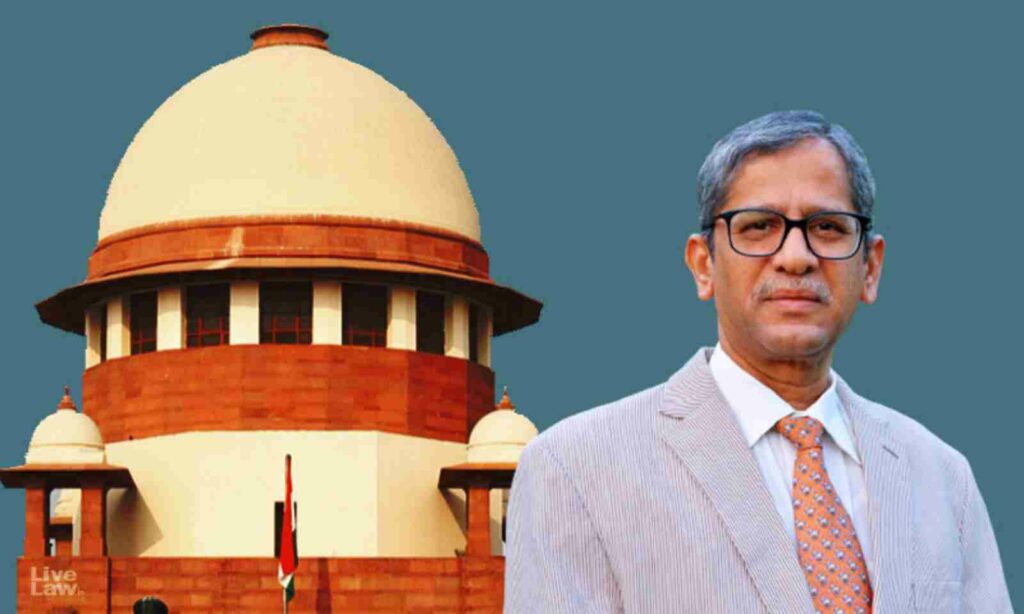Manas Dasgupta
NEW DELHI, April 18: The questions raised then when the Allahabad High Court granted bail to the son of a union minister despite being the prime accused in the Lakhimpur Kheri violence and murder case just before the elections to the Uttar Pradesh and our other state Assemblies in February – March, was answered by the Supreme Court on Monday.
The apex court not only cancelled the bail and directed Ashish Mishra, the son of the union minister of state for home Ajay Mishra, to surrender within a week, it also passed strictures against the High Court for being in a “tearing hurry” to grant the union minister’s son bail after taking into account “several irrelevant considerations” and “without giving any opportunity to the victims of the incident to be heard.
The court, however, allowed Mishra to go back to the Allahabad High Court with another application for bail and a fresh hearing in the case and did not agree with the victims’ advocate to restrain the same bench from hearing the fresh application.
The eye-brows were raised when the Allahabad High Court in an unprecedented judgement had granted bail to the prime accused of a heinous crime of four people, including three farmers and a local journalist were allegedly crushed to death under speeding cars while they were going to participate in a protest demonstration against the government in Lakhimpur Kheri in Uttar Pradesh in October, last year, in the height of the farmers’ agitation against three farm laws which were subsequently repealed by the Narendra Modi government. Three BJP activists were also killed in the violence ensued from the killing of the famers and journalist under the wheels of the cars.
A three-judge Bench of Chief Justice of India N.V. Ramana, Justices Surya Kant and Hima Kohli while delivering the judgement cancelling the bail directed Ashish Mishra to surrender within a week. The order, read out in court by Justice Kant for the Bench, said the High Court exceeded its jurisdiction, denied victims a chance to participate in the bail proceedings and was in a “tearing hurry” to grant bail. He said the court, taking all these factors under consideration, could “rightfully cancel the bail”.
But the court did not deny Mishra his right to seek bail and the High Court could consider his plea fairly, impartially and in an impassionate manner. Senior advocate Dushyant Dave, for the victims, urged the Bench to request the Allahabad High Court Chief Justice to list the bail, if sought, before “another judge” of the High Court. “Let us leave it here,” the Chief Justice told Dave, after conferring with the Bench. Justice Kant observed orally that “we are quite sure the judge would not want to hear it now”.
Reading out the order, Justice Kant observed that the victims had a right to be heard at every stage. “Victims have unbridled participatory rights from the stage of investigation to culmination of proceedings… Victims have been clearly denied an opportunity to be heard at the time of grant of bail to the accused,” Justice Kant observed.
The Bench said the High Court went into “several irrelevant considerations” and treated the FIR as an “encyclopaedia of the events”, and thus, the bail order could not be sustained. The court’s decision was based on pleas by the bereaved families of farmers who were killed when a vehicle allegedly ran over them. The farmers were protesting the controversial agricultural laws at the time of the incident.
One of the key questions which the Supreme Court posed during the hearings was why the State of Uttar Pradesh did not appeal the bail in the Supreme Court. In fact, it had come out during the hearings that the Supreme Court-appointed Special Investigation Team (SIT) and the retired High Court judge monitoring the probe had recommended to the State to file an appeal against the bail order of the High Court under the apprehension that Mishra was influential and could tamper the evidence or “influence witnesses” while out.
“The question is why did you (Uttar Pradesh) not challenge the bail? You knew the circumstances under which we formed the SIT and requested a retired judge of the Punjab and Haryana High Court to monitor the investigation… You yourself admitted the offence is very serious. You say you vehemently opposed the bail application of the accused in the High Court… So we expected you to have acted on the suggestion of the SIT and the monitoring judge to appeal against the bail… You did not…” Chief Justice Ramana had addressed the State, represented by senior advocate Mahesh Jethmalani.
Jethmalani had agreed that the offence alleged, the crushing to death of farmers and a journalist, was indeed “grave.” But he argued that the State had already addressed this apprehension by providing witnesses with “extensive security.” He said there had been no “untoward incidents.” But Dave and advocate Prashant Bhushan, for the families of the victims, had countered the claim by referring to an incident in early March when a key witness was brutally attacked and threatened about his fate with the return to power of the BJP in the State post the Assembly election win.
Justice Kant had queried whether the victims were ever heard by the High Court before bail was granted. Senior advocate Ranjit Kumar appearing for the accused Mishra, said no court would grant his client bail if the Supreme Court revoked it. “I will be in jail for all time to come… You could remand the case back to the High Court,” Kumar had argued. He said the accused was willing to abide by any bail conditions.

